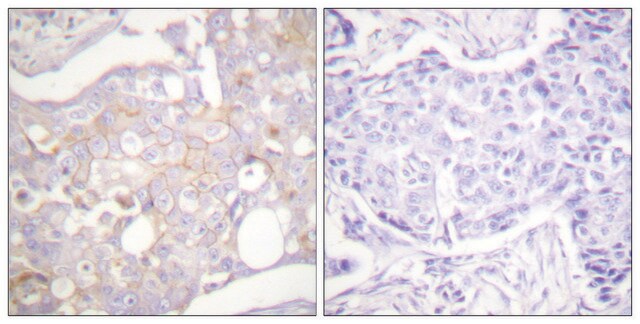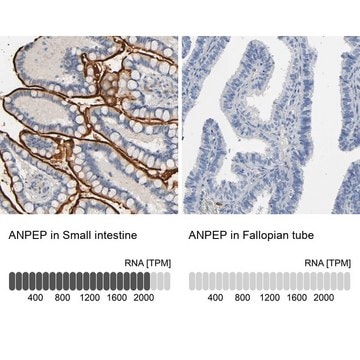SAB4200574
Anti-Claudin-4 (C-terminal) antibody produced in rabbit
affinity isolated antibody
Synonym(s):
(CPER), CLDN4, CPE-R, CPETR1, Clostridium, Williams-Beuren syndrome chromosomal region 8(WBSCR8), enterotoxin, hCPE-R, perfringens, receptor
About This Item
Recommended Products
biological source
rabbit
Quality Level
antibody form
affinity isolated antibody
antibody product type
primary antibodies
species reactivity
rat, human, canine
technique(s)
immunoblotting: suitable
immunofluorescence: suitable
immunohistochemistry: suitable
UniProt accession no.
storage temp.
−20°C
target post-translational modification
unmodified
Gene Information
human ... CLDN4(1364)
General description
Specificity
Application
- immunoblotting
- immunofluorescence
- immunohistochemistry
Biochem/physiol Actions
Physical form
Storage and Stability
Disclaimer
Not finding the right product?
Try our Product Selector Tool.
Storage Class Code
10 - Combustible liquids
Flash Point(F)
Not applicable
Flash Point(C)
Not applicable
Certificates of Analysis (COA)
Search for Certificates of Analysis (COA) by entering the products Lot/Batch Number. Lot and Batch Numbers can be found on a product’s label following the words ‘Lot’ or ‘Batch’.
Already Own This Product?
Find documentation for the products that you have recently purchased in the Document Library.
Our team of scientists has experience in all areas of research including Life Science, Material Science, Chemical Synthesis, Chromatography, Analytical and many others.
Contact Technical Service








